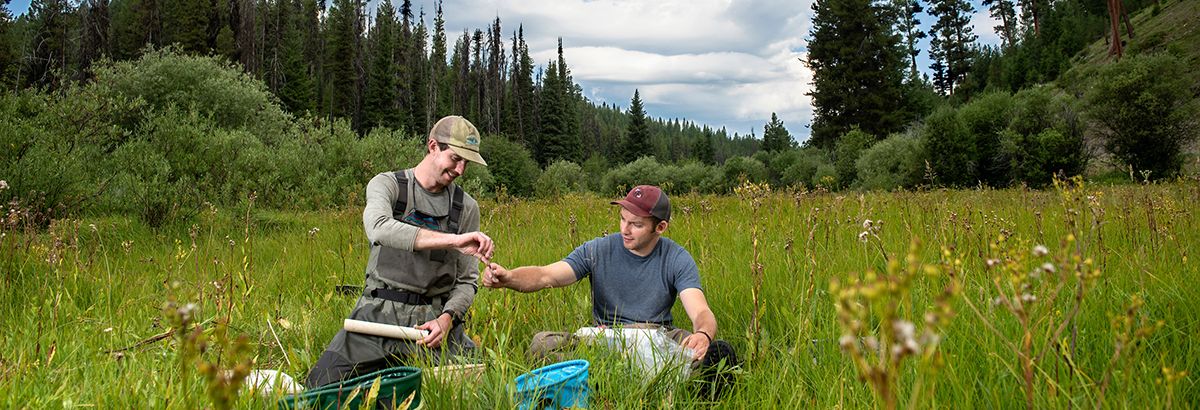Student Spotlight: Suzanna Garcia Pino
In this episode of Confluence, we hear from Suzanne Garcia Pino, an MFA candidate in the creative writing program. Pino discusses what led her to writing and what she hopes to accomplish with her craft. For her thesis project, Pino is using both fiction and nonfiction elements to weave a memoir about living in Albuquerque, New Mexico in 2017.
STORY TRANSCRIPT
My name is Suzanne Garcia Pino, and I am a MFA candidate in the Creative Writing Department. My focus is both on Fiction and Nonfiction.
I felt the call to write when I was in my early twenties when I was finishing up my undergraduate degree, which was in art history and in photography. And I felt this urge to write and I was like, “Ugh, where is this coming from? I hope it goes away.” I just did not, that was not something that I saw for myself. I didn't want to be a writer, that doesn't feel pragmatic to me. The more I tried to downplay it or avoid it, or just have it be a hobby, the more sort of stressed out I felt in a sort of existential sense. I never wanted to take the next step, which is to like make art out of, like, what it was that I was observing. That was not something that I was interested in doing, but I just felt like that was, it just felt like the, maybe that's just sort of like the logical next step, if that's part of the way that you process the world. So anyways, I was sort of a late bloomer in answering that, that call.
I started writing short fiction pieces. They were so unbelievably bad. But, honestly, when I started to get it right, this feeling would come over me. And it was so calm and it was like, you know, being in the flow and that was a, an addictive feeling for me. I feel like if my writing is in a healthy space, then what I'm trying to do is just be authentic. And, like what I would say is “right sized.” Like I'm just trying to tell the truth and I let go of the outcome. I let go of any sort of desire that I have for, like, what will happen to the piece. When the piece gets to a certain point where I feel like it's done and I've done everything to it, that I can, I have to treat it in the same way that I would treat my own child, which is like, I want to try and get it, put it in the best hands so that it can, you know, move on and do what it wants to do.
I wanted to write a memoir about living in Albuquerque in the year 2017. It was an intense year to live in Albuquerque. Our violent crime rate was the highest per capita in the United States. Trump had just been elected, which if you are living in a community where there are a lot of undocumented workers. That's a very fearful, very fearful place to be. So, I'm writing about that year, but I'm trying to put it into this context of history about why a year like that is even happening because Albuquerque is the confluence of different cultures. You know, Trump and his—the rhetoric of Trump and this sort of like mythology about a perfect past. And, what archetypes are trying to be preserved. What kind of archetypes are trying to be repressed so that some humans have more value than other humans. And so, there are fiction elements to this thesis project as well, because I am writing about an imagined past to sort of think about these mythologies that right now, I feel like we're trying to decide what we want to do with. Do we want to keep these mythologies or do we want to update them? And so, it's just sort of the confluence of all of these themes that came up for me in 2017 and that I’m starting to see, I really see reflected in 2020.
I think that my motivation at the end of the day is, I feel like I'm having this, you know, my own particular experience of how I process the world. And, it makes me feel isolated, lonely, and crazy when I don't see that experience represented, in, in the collective, through the collective’s storytelling. And so, the motivation is to always try and name what in particular is happening to me and put that in my artwork so that I can connect with people in the way that I am experiencing the world.
